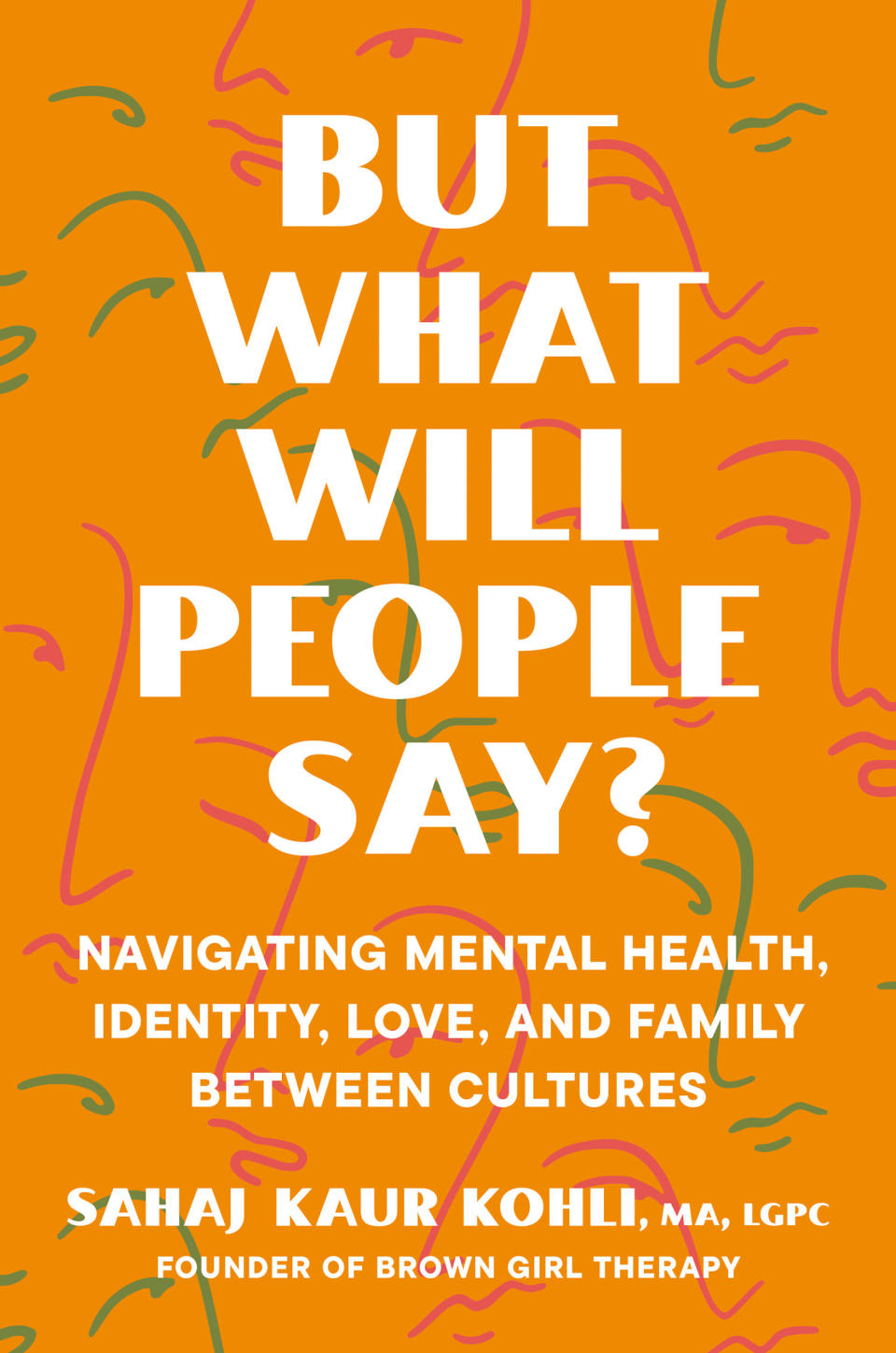'Brown Girl Therapy' founder tackles South Asian mental health stigma in new book
In South Asian communities, conversations about mental health have long been met with stigma, often shut down by some version of “What will people say?” It’s a sentiment uttered by many immigrant parents, aunties or uncles who think that admitting struggles is something shameful.
Indian American therapist and writer Sahaj Kohli, best known for her viral Instagram page “Brown Girl Therapy,” has made it her life’s work to challenge that notion. She launched the account in 2019 as a way of opening up conversations about mental health in the diaspora. And this week, she published her first book, “But What Will People Say?”, which aims to once again speak directly to immigrant families.
“When I was struggling with my mental health and I was living at home in my 20s, my parents actually said, ‘What will people say about this?’ They didn’t mean it to be hurtful, but they were genuinely concerned about how my own struggles reflected on them as parents,” Kohli told NBC News. “We’re just so concerned about what other people are gonna think or say about us, so we start to develop these performative behaviors and identities.”
Kohli started “Brown Girl Therapy” after switching career paths and becoming a therapist. It was a challenging time for her own mental health, she said, and none of the books she read or resources she turned to addressed what she was experiencing on the homefront.
“There wasn’t a lot of representation around having immigrant parents who might have different expectations from what you want,” she said. “For many of us who grew up in immigrant families, there’s already a path created for us.”
The page has amassed over 230,000 followers so far, and Kohli has continued to use it to post uplifting mental health, family and dating advice for women of color. She answers niche questions like, “What to do if your parents are emotionally blackmailing you” and talks about straddling a collectivistic Asian culture with an individualistic Western one.

“In one culture, we’re encouraged to take care of other people, sometimes at the expense of ourselves,” she said. “And in another culture, we’re encouraged to take care of ourself at the expense of others.”
She delves deeper in the topic in her book, which features a combination of personal stories, self-help and advice. She especially hopes the book reaches South Asian immigrant parents, many of whom repress their own trauma and ignore mental health challenges, she said.
“I think the older people get, the less they feel inclined to want to do this work,” she said. “They’ll often just resort to, ‘I turned out fine,’ or ‘it’s too late,’ or ‘what’s the point?’
But through “Brown Girl Therapy,” Kohli says she’s met older South Asian immigrants who have taken the steps to confront their issues and the stigmas that surround them. And she thinks “But What Will People Say?” will bring the conversation to even more kitchen tables.
“I don’t think it’s ever too late for immigrant parents,” she said. “Sometimes things that are worth it are really difficult. And sometimes we do need to challenge narratives that we’ve held so closely for so long.”
For more from NBC Asian America, sign up for our weekly newsletter.
This article was originally published on NBCNews.com

